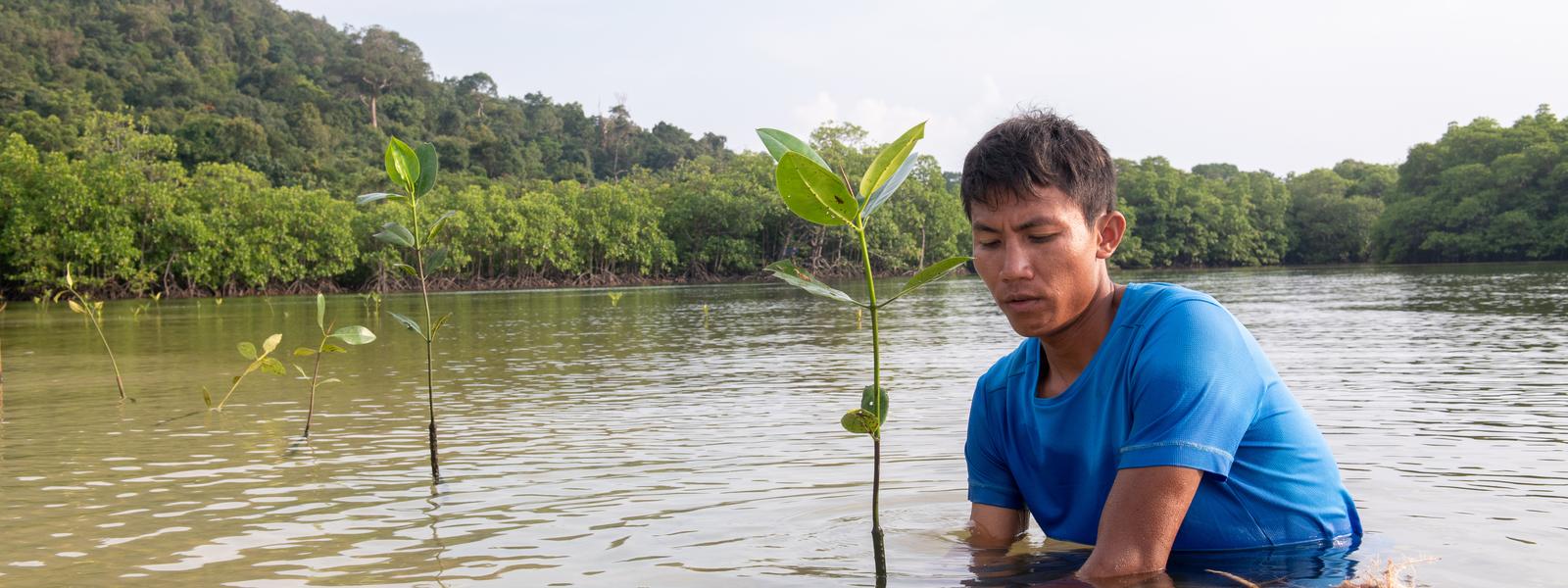Carbon
There's no sugar-coating the fact that travel leaves a carbon footprint.
Flying away on holiday was always supposed to be a privilege — a treat. Most of us have come to take it far too much for granted. But we believe that there is an optimal path, so we've started to think in terms of dividing your carbon miles by the number of days you spend abroad. If we control the overall number of flights, enjoy longer holidays less often, and choose thoughtful low carbon high-benefit things to do whether we're on holiday or at home, then we can use tourism to distribute wealth abroad, and make it pay to protect forests and look after wildlife… not to mention enjoying life while we're at it.
Greenwashing doesn't do any of us any favours — it just makes people cynical, and liable to overlook things that actually do make a difference. We continually work hard to improve our effect on the planet, as fast as possible. Reducing our carbon output is just one aspect of this. High quality mitigation programs are another.
It is of course vital to minimise our carbon footprint at every level of our operation, from our home offices through to your activities on the trips we design for you. Selective Asia already has a relatively light direct operational carbon footprint, and we work hard to keep it that way. However, the carbon emitted on our trips is more sizeable and complex.
We recognise that mitigation isn't a magic bullet, so we undertake many other ways to make sure our sum contribution to this world is a good one. Nevertheless, there are ways to mitigate effectively.
 To achieve this, we recommend using C-Level. They work directly with environmental scientists and communities in vulnerable habitats to develop functional ways to make conservation profitable for local people. They then channel carbon mitigation payments directly into these projects. It sounds straightforward enough, but a lot of thought, science and economics go into it. We think it's worth every penny.
To achieve this, we recommend using C-Level. They work directly with environmental scientists and communities in vulnerable habitats to develop functional ways to make conservation profitable for local people. They then channel carbon mitigation payments directly into these projects. It sounds straightforward enough, but a lot of thought, science and economics go into it. We think it's worth every penny.
The truth about flights
Flights release carbon. There's no getting around it. Commercial aviation contributes just under 3% of global carbon emissions. Passenger flights account for about 80% of that. At the moment, voluntarily reducing how much we fly is the most practical way to immediately reduce the carbon released by burning aviation fuel. The aviation industry is working on aircraft efficiency and sustainability — short range aircraft are improving, and some countries are pushing national carriers to meet extremely challenging targets. But there's no question that airlines are still operating outside the zeitgeist. Aviation fuel is untaxed, and airlines themselves are not required to offset their own carbon footprint. Clearly there is still much work to be done. This is true across the board, of course. Research by the European Parliament found that (in 2016) road transport caused 18% of global carbon emissions and (in 2018) the construction industry between 30-40%. It's up to each of us to decide how we distribute our carbon use, and it's up to all of us to make sure the impact we do make in our lifetimes is net positive.
How we're tackling carbon
Four pillars support our approach to carbon: transparency, reduction, education and community.
Transparency
Using calculations by C-Level, we'll include the carbon impact of your trip within your quote so you're informed ahead of booking. If you want to make any adjustments to reduce your footprint, we can advise on how to do it.
Reduction
We'll define carbon reduction actions for ourselves and our partners in Asia, and work with them to improve efficiency and find more sustainable modes of transport. We'll lobby for greener airlines, hotels, food and vehicles, and we'll even go so far as to share ways you could reduce your own carbon footprint, whilst travelling and at home.
Education
Ignorance is bliss, right? Except it can also end in disaster, which is why we think it's better to let you make informed decisions. We're also committed to training our network overseas, so that they can make the best decisions when it comes to lowering emissions, be that serving up local seasonal ingredients or limiting the use of cars.
Community
We need each other, and collectively we are more likely to come up with the answers, quickly. Committed as we are to always improving, there are many better informed, more enlightened minds out there — we salute you, and hope you'll join this conversation.
